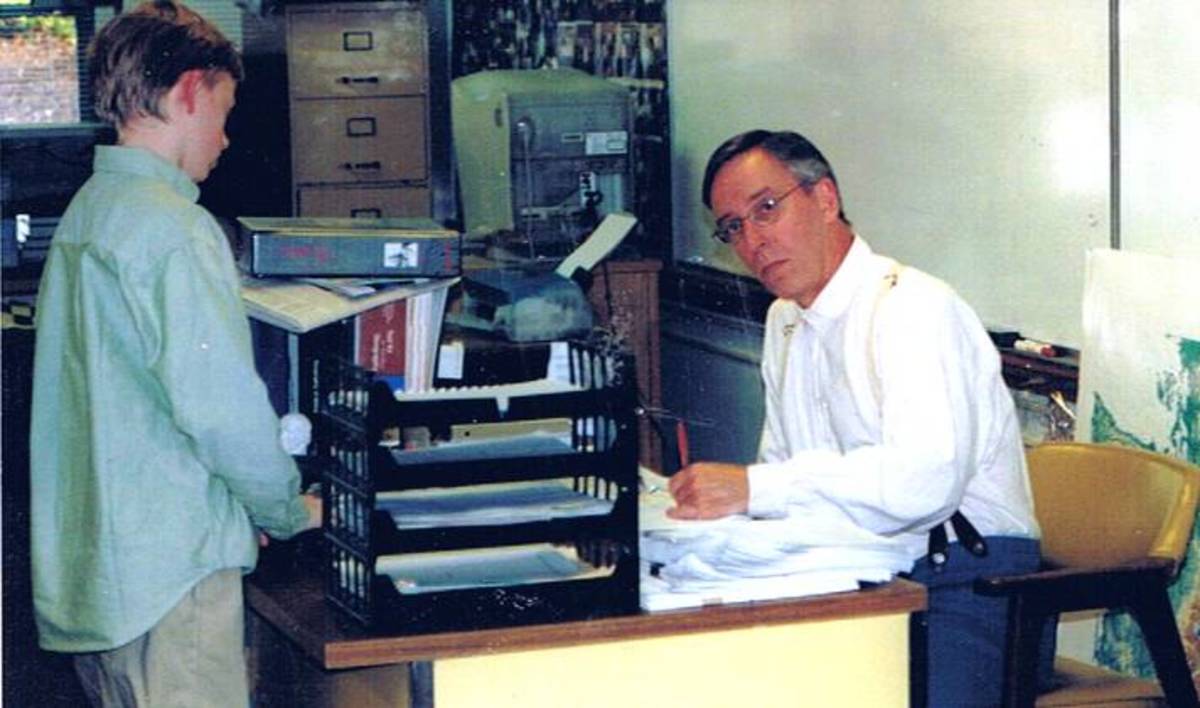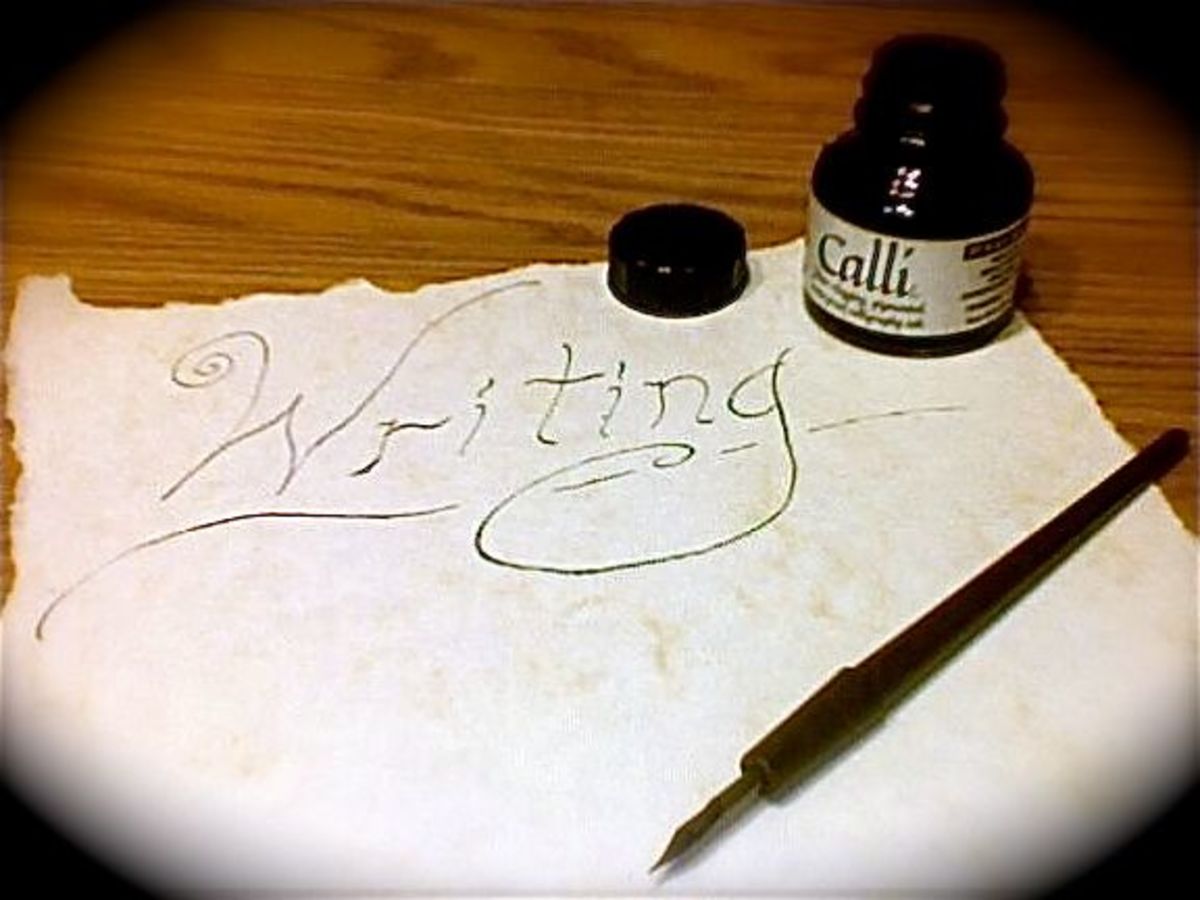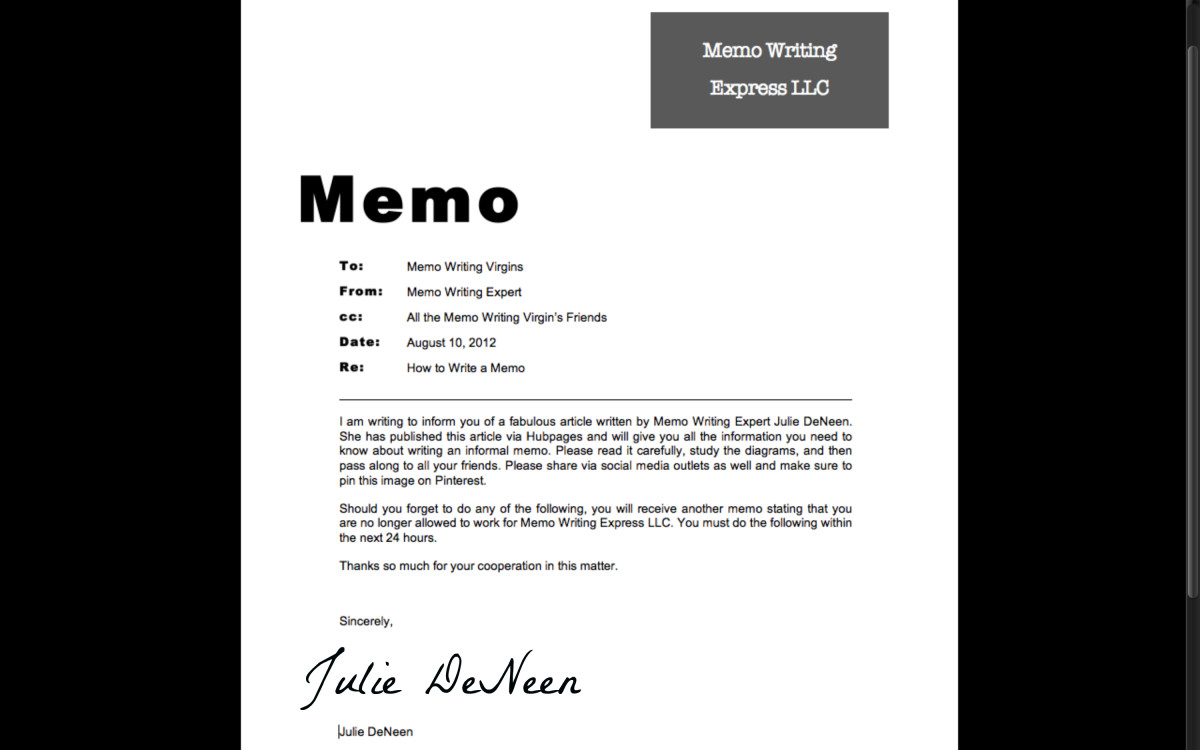What stands in your way?
Author's Note
This is an old hub that was published a while back. Recently, I met a new Hubber, Anna Marie Bowman, who shared some of her writing obstacles with me. I was motivated to give her some tips on what she could do to overcome her obstacles, and I chose to add those tips to this hub, for all to benefit from. Anna's tips are Finding Time or Making Time...? and Focu... Ooooh Pretty!
Thank you to those who have returned to this hub, and thank you for those who continue to give me ideas to write about!
What stands in your way?
Recently, Website Examiner asked me a question that motivated me to write a hub about finishing my novel. That got me thinking, and so I asked another question:
What is the most challenging part about writing for you? What is your biggest obstacle?
Here are some responses I got, and some tips I write by that help me overcome the same obstacles:
ME! Me, myself and I and my damn lack of confidence...
You don't have to stand in your own way! I found a great way to convince myself that I'm a good writer. I was working on my novel one day and something just clicked and I wrote an amazing emotional scene. When I finished, I knew that no matter what anyone else said about that scene, I would always love it. No matter how down I feel about my writing, I can go read that one scene and I will know that I am a good writer, because I wrote something so incredibly good. No one has told me it's good, I just think it is, and I hold onto that and let it motivate me. You can do that too!
How? There are several different ways to write your self-motivation piece.
Take a page out of someone else's book! Find your most favorite scene from your most favorite book and type it out word for word. Then rewrite the scene in your own style, or borrow the author's style and write your own scene with it.
OR
Write about an emotional moment in your life, using your very best writing to recreate the moment. Focus on that emotion and make yourself feel it again, and no matter what you write about, believe that it's good if it made you feel that way again.
OR
Maybe you already wrote your self-motivation piece. Search your old notebooks for it. It might be hard to find if it's only a rough draft right now. Find it and fix it up. Make it awesome.
Keep this story in a secret special place (don't share it with anyone!), and take it out whenever you feel that your confidence is faltering. Read it and enjoy it all over again, and then think to yourself, "I wrote this!" You will be surprised at how powerful your own words have made you!
Criticism
You and criticism don't have to be enemies! It's true that no one likes to be told he or she is wrong, and getting corrected can be a huge confidence crusher, but the criticism can only knock you down as much as you let it.
It might sound cheesy to say, but your attitude will determine how much the negative criticism effects you. The most important thing I've learned about criticism is that you can't make everyone happy, and if you try to please everybody, you will most likely fail to please anyone. Write something that you believe in, that you know is right with all your heart, and don't let anyone else convince you otherwise.
It's okay to be stubborn about what you believe in, but you have to be willing to say, "let's agree to disagree" and seek out the people who value what you have to say. Those people are your true audience! Use criticism to help you find the people you want to write for. The readers who support you with positive feedback and friendly constructive suggestions are your true audience! Find them, and ignore the other people who threaten to bring you down.
I have found that people offering me criticism are only trying to help, and that implies that they care about me or see potential in my writing.
Finding topics that most people will like
Choosing topics doesn't have to be hard! The problem lies in trying to please everyone. Most people like humorous reads, but not everyone will laugh at the same thing, and not everyone can write humor. Most writers are interested in how-to-write hubs, but not everyone will need to know the same things, so can you really entertain everyone?
If you try to write about something that most people will like, you may be setting yourself up to fail.
In my own personal experience, the best solution has been to choose one person who I want to entertain, and tune everyone else out. Once you know who your audience is, you can write about what that one person will enjoy (as well as all the other people who have similar tastes). What if you don't want to limit yourself to one person? I do know that everyone likes a story about interesting personal experiences, so whenever a very interesting thing happens to you, write about it, and people will read.
So what do you write when nothing interesting happens?
In school now, they teach children to write small moment stories about their lives. Zero in on the details on a very short span of time. Even if it’s not a story (because there was no conflict) writing about the details will make you a better writer. This can lead to some amazing descriptive narrative poetry, so try it out!
Another suggestion that we teach children in writing classes now is to create a list of stories or writing ideas. I have one! (It’s easier to come up with stories that are fictional for me, but it doesn’t have to be a fiction-only list.) Every time I feel like taking a break from one of my bigger projects, I check out my list. And I’m always thinking of things to add to it. Usually my dreams will give me great ideas, as well as news paper articles and magazines.
One last suggestion for thinking about topics: Choose a favorite person, place (maybe vacation spot?), holiday, or favorite hobby and write all the small moments about that specific topic down. (Yes, this is another list.) After you fill the page with moments about your grandpa Bob or Christmas memories, or all the vacation spots you could possibly think of, pick the one that motivates you the most and go for it!
Lack of motivation and writer's block
Everyone has moments when they don't feel like writing. And everyone has moments when they want to write but just can't. So what do you do about it?
For me, the best answer is to know my writing patterns. You are a unique writer with unique writing habits, and once you understand those habits, you will be able to get through them. Focus first on your habits when you are most productive in your writing. Think back to the last time you were on a great writing streak. What happened to you that spurred you into such an awesome stint of productivity? Did you have a satisfying day at work? Or an awful day at work? Did you have a great day off? Just get back from a vacation? Did you just go on a first date? Or have a good workout at the gym?
You might also be able to spend time on an activity to get in the mood to write. Maybe it's reading something by your favorite author, or going back to read the last thing you wrote, or reading aloud to your favorite reader who will always offer you praise. Whatever it is, once you pinpoint it, you can use it as your jump-start to stay motivated when you feel a block coming on.
The key to finding the activity that motivates you revolves around discovering why you became a writer in the first place. Was it for you? Was it for your best friend who loved your ideas? Was it for the people you loved to entertain? Was it your love of stories or the written word? Figure that out, and use the power of that knowledge to be proactive in dispelling your block through motivation!
It will also help to know what triggers a block or makes you feel unmotivated. Figure out what brings you down, and be proactive to stop it in its tracks, before it even starts. Keep in mind that you might feel unmotivated or blocked because writing is hard work, and you just need a break. So stop trying to force it and go spend some time on one of those motivating activities for a while. Enjoy your time away, but remember how awesome it feels to write, and look forward to coming back.
Finding Time or Making Time....?
Time to write is a common problem that writers are always battling. How do you manage to make any progress on your writing projects when you are always working, cleaning, sleeping....? There is no easy answer, but there are several steps toward a solution.
The first step in finding writing time is realizing that you need more of it. Once you pinpoint that the reason why you struggle to produce writing or complete a short story that you start is because you need more time, you can focus on solving that problem.
Sometimes it will help to change the way you think about writing time. If you think about it as a hobby (because it is your hobby) then consider thinking of writing as a task that needs to be completed much the way you gotta do the laundry or get those dishes loaded and unloaded from the dishwasher. Think about it. You probably do the laundry every week, for maybe half an hour. What if you adopted the same attitude of must do it with your writing? Half an hour every week, or someone won't have a clean pair of underwear on Sunday! Okay, so it's not quite as important as clean clothes for work next week, but maybe that is why it doesn't get done? Try it for a while. If you find that once a week for thirty minutes isn't a big enough improvement to what you already do, then consider moving on to the dishes attitude: ten to fifteen minutes every day or else someone won't have a clean bowl and a spoon for his cereal in the morning!
So now you have the attitude of must do it. Now comes the hard part. When do you do it? Consider this, keeping that analogy of the laundry or the dishes in mind. When you have to do something, you might plan a night to do it (such as Saturday night laundry) or you might just do it when you see it needs to be done (dish washer is clean, time to empty it!). You can use that same attitude with your writing. If you tend to do your laundry when it fits into your schedule, then do that with your writing, when it fits. But keep in mind that if you don't get to it all week, you won't have anything to wear to church on Sunday! On the other hand, if you tend to run the dishwasher every evening and empty it every morning, then try the same thing with your writing. If you put off emptying that dishwasher, the sink will overflow with dirty cereal bowls and pots and pans from dinner! Don't let that happen!
Once you see some progress in increasing your writing time through this attitude of gotta do it, you may find that you are suddenly writing the way you were doing the rest of the things in your life. With an 'on-the-go' flow that allows you to utilize every minute of extra time that you have. This is how I was eventually able to write for fifteen minutes in between my day job and my night job on a fairly consistent basis. All I needed was a notebook and I was good to go. But I had to train myself over the course of many weeks and if I ever skipped a day, I had to work to get back up to that pace I wanted to maintain. I took it seriously, and I managed to write the first draft of an entire book while working two jobs because of it.
Focu.... ooooh pretty!
If you are like me, then your mind is all over the place. You have twenty things going on at once, and you can't even remember all of them. You jump from one activity to the next without maintaining any kind of focus. Imagine what that's doing to your writing. Okay, maybe you don't have to imagine, because you already know what it's doing to your writing. But if not, then know that the first step to fixing your focus is realizing that you have to improve your focus.
The next step to improving your focus is making a conscious commitment to stay focused on one to three projects at a time until you finish them. This is where you make a goal to focus your energy until you achieve the desired results, whether that is to finish a novel or write a short story from start to finish or complete a chapter every week. Here are some tips for making writing goals, with the focus on attainability, specificity, and motivation.
The first aspect of creating writing goals is to keep them realistic so you can attain them. If you strive to finish a novel in one year, but only have thirty minutes to write every week, you will soon realize that your goal is unrealistic, and this can cause you to write even less than you already do. So consider making your goal attainable. Instead of, I will finish my novel in one year, try, I will write one chapter every month. Then you will be sure to attain your goal.
The second aspect of creating writing goals is to keep them specific. If you strive to finish your novel in one year, but you don't take the time to map out the specifics for how you get from here to there, you will soon find that something which is completely possible has become impossible because you got lost in the details. So consider making your goal specific. Try, I will write my first draft in three months and begin my second draft by December first, and see if that helps keep you focused on reaching that long term goal.
The third aspect of creating writing goals is to make goals with the realization that you need to stay motivated to reach your goals. This will mean different things to different writers, since nobody stays motivated in the same way. For some writers, this means choosing two or three projects to work on at once, so you can choose between different projects and always find something you feel like writing about. For some writers, this means taking the time to track your progress and celebrate when you reach a milestone in your writing or give yourself a day off if you get ahead of schedule or get into a great routine that caused you to make a lot of progress. If you really want to stay motivated with your goals, then choose your goals wisely, considering which of your projects holds your interest the most. And know that if you tend to jump around from one project to the next, your goal needs to take that into consideration. So instead of I will finish this short story in one month, consider, I will write 1,000 words for any of these three projects every week. That way, you will make progress while allowing for your own individual work habits, and you will not hinder yourself by working against your own motivational tendencies.
So often, I give up on making goals, because I never reach them. I convince myself that goals are too rigid or demanding and creativity doesn't work like that. But that is not the case. Goals are necessary to make progress with any activity, and with writing especially. It's the kind of goals that we make, the way we set them, and the way we monitor our progress and stay motivated that make goals work for us. And everyone has different quirks and individuality that must be considered. My writing tendencies are different than yours, and my goals should reflect that uniqueness. You know yourself better than anyone else. You can reach your goals, and you can stay focused enough to finish what you start. Just take the time to carefully plan, monitor and celebrate your writing goals.
Now what?
This hub is a work in progress. If you have an obstacle and you're seeking advice on how to overcome it, let me know! We can brainstorm solutions together! If you have your own suggestions for overcoming some obstacles, please don't be afraid to share them! Let's come together and help each other write!








